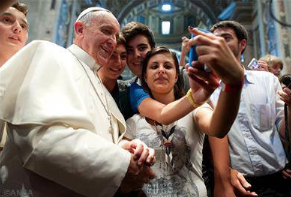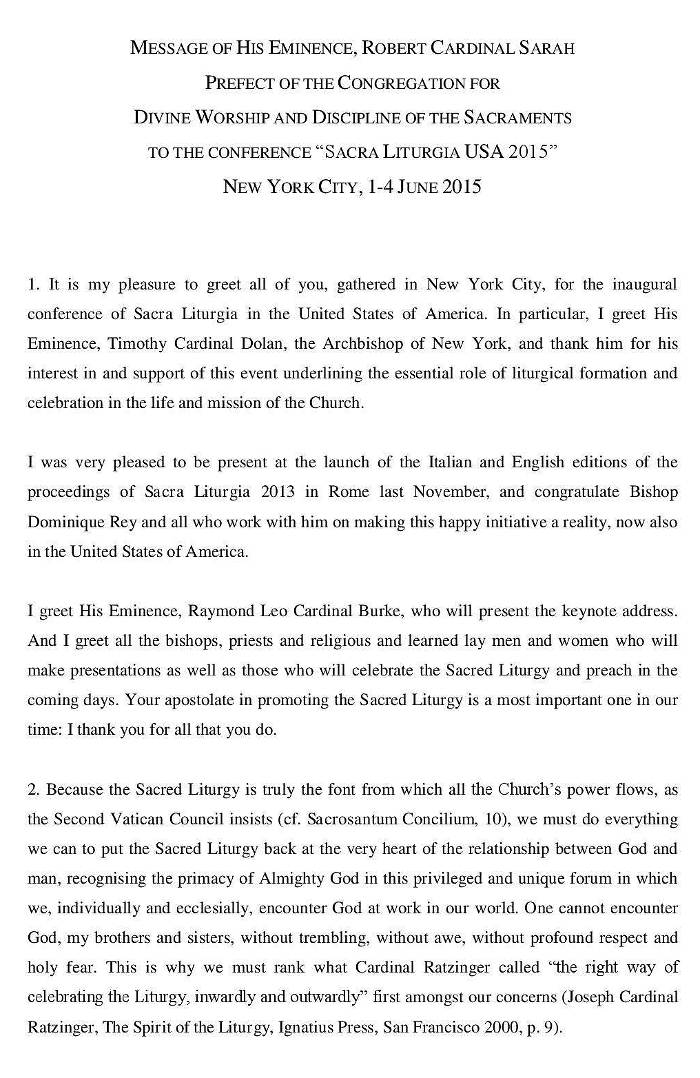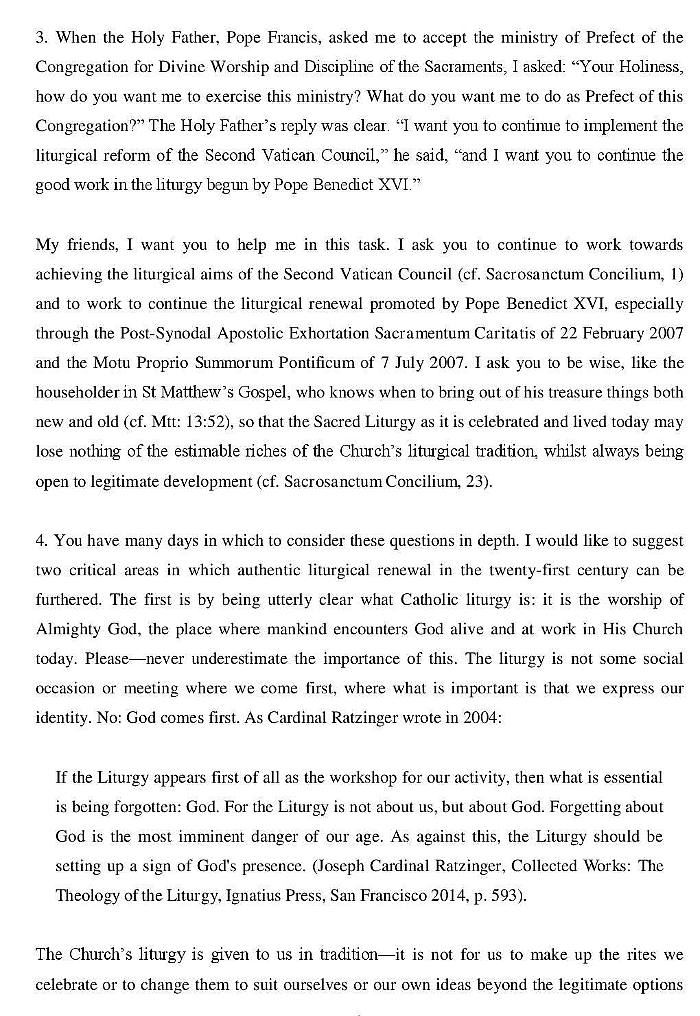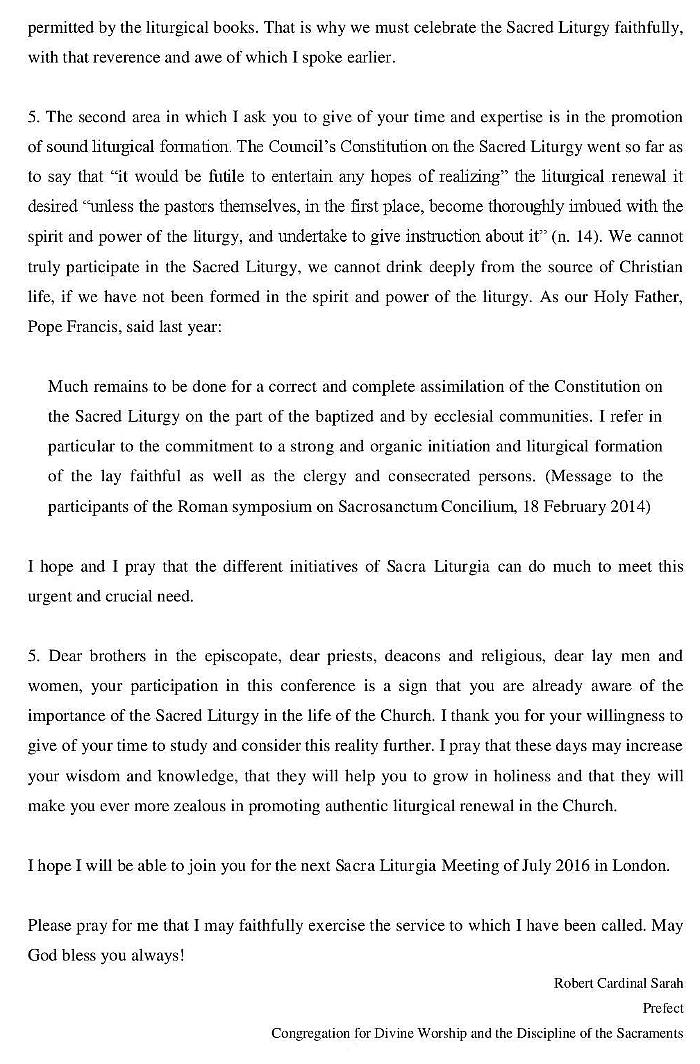THE THEMES OF THE SIX CHAPTERS (15)
I will begin by briefly reviewing several aspects of the present ecological crisis, with the aim of drawing on the results of the best scientific research available today, letting them touch us deeply and provide a concrete foundation for the ethical and spiritual itinerary that follows.
I will then consider some principles drawn from the Judaeo-Christian tradition which can render our commitment to the environment more coherent.
I will then attempt to get to the roots of the present situation, so as to consider not only its symptoms but also its deepest causes.
This will help to provide an approach to ecology which respects our unique place as human beings in this world and our relationship to our surroundings.
In light of this reflection, I will advance some broader proposals for dialogue and action which would involve each of us as individuals, and also affect international policy.
Finally, convinced as I am that change is impossible without motivation and a process of education, I will offer some inspired guidelines for human development to be found in the treasure of Christian spiritual experience.
……………………
THE EMBRYO IS ALSO NATURE TO BE DEFENDED (120)
Since everything is interrelated, concern for the protection of nature is also incompatible with the justification of abortion. How can we genuinely teach the importance of concern for other vulnerable beings, however troublesome or inconvenient they may be, if we fail to protect a human embryo, even when its presence is uncomfortable and creates difficulties?
………………
SEXUAL DIFFERENTIATION IS A LAW OF NATURE (155)
Human ecology also implies another profound reality: the relationship between human life and the moral law, which is inscribed in our nature and is necessary for the creation of a more dignified environment. Pope Benedict XVI spoke of an “ecology of man”, based on the fact that “man too has a nature that he must respect and that he cannot manipulate at will”… Also, valuing one’s own body in its femininity or masculinity is necessary if I am going to be able to recognize myself in an encounter with someone who is different. In this way we can joyfully accept the specific gifts of another man or woman, the work of God the Creator, and find mutual enrichment. It is not a healthy attitude which would seek “to cancel out sexual difference because it no longer knows how to confront it”.
……………..
THE CHURCH DOES NOT GIVE SCIENTIFIC SOLUTIONS (188)
There are certain environmental issues where it is not easy to achieve a broad consensus. Here I would state once more that the Church does not presume to settle scientific questions or to replace politics. But I am concerned to encourage an honest and open debate so that particular interests or ideologies will not prejudice the common good.
……………………….
IN PRAISE OF THE FAMILY (213)
I would stress the great importance of the family, which is the place in which life – the gift of God – can be properly welcomed and protected against the many attacks to which it is exposed, and can develop in accordance with what constitutes authentic human growth. In the face of the so-called culture of death, the family is the heart of the culture of life.
In the family we first learn how to show love and respect for life; we are taught the proper use of things, order and cleanliness, respect for the local ecosystem and care for all creatures. In the family we receive an integral education, which enables us to grow harmoniously in personal maturity.
In the family we learn to ask without demanding, to say “thank you” as an expression of genuine gratitude for what we have been given, to control our aggressivity and greed, and to ask forgiveness when we have caused harm. These simple gestures of heartfelt courtesy help to create a culture of shared life and respect for our surroundings.
………………….
PRAYER AT MEALTIME (227)
One expression of this attitude is when we stop and give thanks to God before and after meals. I ask all believers to return to this beautiful and meaningful custom. That moment of blessing, however brief, reminds us of our dependence on God for life; it strengthens our feeling of gratitude for the gifts of creation; it acknowledges those who by their labours provide us with these goods; and it reaffirms our solidarity with those in greatest need.
…………………
IN PRAISE OF SUNDAY (237)
On Sunday, our participation in the Eucharist has special importance. Sunday, like the Jewish Sabbath, is meant to be a day which heals our relationships with God, with ourselves, with others and with the world. Sunday is the day of the Resurrection, the “first day” of the new creation, whose first fruits are the Lord’s risen humanity, the pledge of the final transfiguration of all created reality. It also proclaims man’s eternal rest in God… Rest opens our eyes to the larger picture and gives us renewed sensitivity to the rights of others. And so the day of rest, centred on the Eucharist, sheds it light on the whole week, and motivates us to greater concern for nature and the poor.
…………………….
IN WAITING FOR ETERNAL LIFE (243 and 244)
Eternal life will be a shared experience of awe, in which each creature, resplendently transfigured, will take its rightful place and have something to give those poor men and women who will have been liberated once and for all.
In the meantime, we come together to take charge of this home which has been entrusted to us, knowing that all the good which exists here will be taken up into the heavenly feast.




